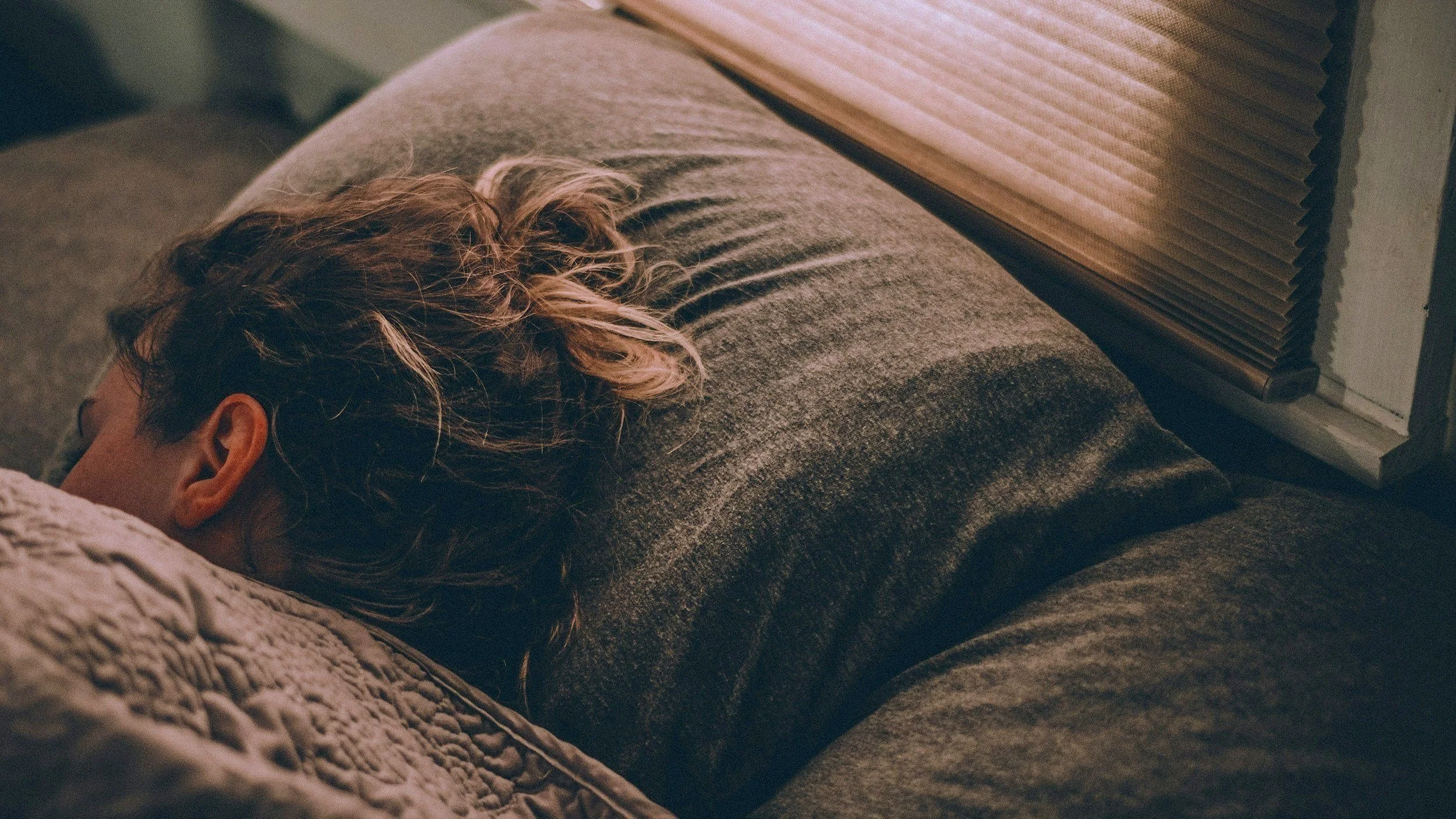Sleep
Sleepless Nights, Restless Minds: Exploring the Complex Link Between
Anxiety and Sleep Disorders
Anxiety and sleep disorders share a deeply intertwined relationship, frequently reinforcing one another in a persistent, challenging cycle. This intricate connection significantly impacts individuals' daily lives, transforming ordinary activities into overwhelming tasks. Nighttime often becomes particularly difficult as silence and solitude amplify anxious thoughts, making falling asleep exceptionally daunting.
Anxiety triggers a complex physiological response, releasing stress hormones like cortisol and adrenaline into the body. These hormones play essential roles in immediate threat situations, activating the body's evolutionary "fight-or-flight" mechanism. However, chronic anxiety maintains continuous hormone release, disrupting the body's circadian rhythm its natural internal clock controlling sleep-wake cycles. Physical manifestations of this disruption include elevated heart rates, high blood pressure, rapid breathing, muscle tension, and heightened alertness, all detrimental to restful sleep.
Insomnia, commonly associated with anxiety, involves persistent difficulties falling asleep or maintaining sleep throughout the night. Individuals suffering from anxiety-induced insomnia frequently describe feelings of hypervigilance or intense restlessness when trying to sleep. This inability to disengage from intrusive thoughts makes restful sleep nearly impossible. Anxiety can also lead to fragmented sleep patterns and frequent awakenings, often exacerbated by vivid nightmares or distressing dreams, leaving sufferers emotionally drained and inadequately rested.
The consequences of anxiety-related sleep disturbances extend beyond mere fatigue. Chronic sleep deprivation significantly impairs cognitive functions such as memory, concentration, decision-making, and overall productivity. Persistent sleep issues gradually erode an individual's cognitive capabilities, complicating daily responsibilities and routine activities. Moreover, chronic anxiety-related sleep disruption elevates susceptibility to mental health disorders, including depression, generalised anxiety disorder, and emotional instability, intensifying the problematic cycle.
Physically, long-term sleep disturbances caused by anxiety pose significant health risks. Research from the UK's National Health Service (NHS) highlights increased risks of developing hypertension, cardiovascular diseases, diabetes, and a compromised immune system resulting from chronic sleep deficits. Without adequate restorative sleep, the body's ability to recover diminishes, increasing vulnerability to various health conditions.
Managing anxiety-induced sleep disorders effectively requires a comprehensive approach that combines therapeutic interventions, lifestyle changes, and sometimes medical treatments. Cognitive Behavioural Therapy (CBT) is widely recognised for its efficacy in addressing anxiety-driven sleep disturbances. CBT assists individuals in identifying and modifying anxiety-inducing thoughts and behaviours, offering practical coping mechanisms to improve sleep.
Alongside CBT, mindfulness meditation and relaxation techniques have demonstrated significant benefits in reducing anxiety symptoms and enhancing sleep quality. Methods such as progressive muscle relaxation, deep breathing exercises, guided visualisations, and regular meditation practice promote relaxation and calmness, providing individuals with practical tools to combat anxiety-induced insomnia.
Lifestyle adjustments also substantially impact sleep health. Establishing a consistent sleep schedule, even on weekends, reinforces the body's natural sleep-wake cycle. Creating a comfortable and calming sleep environment, reducing noise, optimising room temperature, and eliminating intrusive lighting significantly improve sleep quality. Furthermore, limiting screen time before bed is crucial, as blue light exposure inhibits melatonin production, disrupting sleep regulation.
Dietary and physical activity choices further influence sleep and anxiety management. Reducing consumption of stimulants such as caffeine, nicotine, and alcohol, particularly in the evening, facilitates better sleep initiation. Regular exercise provides considerable benefits, consistently shown to reduce anxiety levels, stabilise mood, and significantly enhance overall sleep quality.
For some, medical interventions may be essential for managing severe anxiety symptoms and establishing healthier sleep patterns. Medication prescribed by qualified healthcare professionals can offer temporary relief, facilitating effective engagement with therapeutic and lifestyle interventions. Importantly, medication should complement, not replace, other comprehensive approaches to managing sleep health.
Breaking the anxiety-sleep cycle necessitates awareness, understanding, and proactive intervention. Open, honest discussions with healthcare and mental health professionals help create personalised strategies combining therapy, mindfulness practices, lifestyle changes, and medical interventions as needed. Increased awareness and action empower individuals to regain control over their sleep and significantly improve their overall wellbeing.
Case Studies and Personal Experiences
Consider Sarah, a 34-year-old marketing professional. Chronic anxiety significantly disrupted her sleep, causing prolonged periods of insomnia characterised by intense restlessness and frequent awakenings. Sarah described nighttime as a "battlefield" of racing thoughts, contributing to ongoing fatigue and reduced workplace productivity. After undertaking Cognitive Behavioural Therapy (CBT) combined with mindfulness meditation techniques, she reported noticeable improvements in sleep quality and emotional resilience, underscoring the importance of integrated therapeutic approaches.
Expert Insights and Interviews
Dr. Emily Henderson, a psychologist specialising in sleep disorders, highlights: "Anxiety-driven sleep disorders require a multi-dimensional treatment approach. Psychological therapies combined with practical lifestyle adjustments can significantly improve sleep and reduce anxiety. Patients who actively participate in CBT often experience long-lasting benefits."
Dr. Jonathan Patel, a consultant psychiatrist, emphasises the importance of addressing underlying anxiety directly: "Medication has a role but should always be part of a broader treatment strategy that includes therapy, behavioural changes, and mindfulness practices."
Research and Evidence
Studies consistently confirm the link between anxiety and sleep disorders. A comprehensive review published in the Journal of Anxiety Disorders found CBT significantly improved sleep quality among anxiety sufferers. Another research study published in Sleep Medicine Reviews highlights that mindfulness meditation techniques effectively reduce anxiety and enhance overall sleep quality.
References
Belleville, G., Cousineau, H., Levrier, K., St-Pierre-Delorme, M. È., & Marchand, A. (2016). Sleep Quality Improvement During Cognitive Behavioral Therapy for Anxiety Disorders. Journal of Anxiety Disorders, 39, 28–36. https://pmc.ncbi.nlm.nih.gov/articles/PMC4744149/
Rusch, H. L., Rosario, M., Levison, L. M., Olivera, A., Livingston, W. S., Wu, T., & Gill, J. M. (2019). The effect of mindfulness meditation on sleep quality: a systematic review and meta-analysis of randomized controlled trials. Annals of Behavioral Medicine, 53(5), 472–485. https://pmc.ncbi.nlm.nih.gov/articles/PMC6557693/
